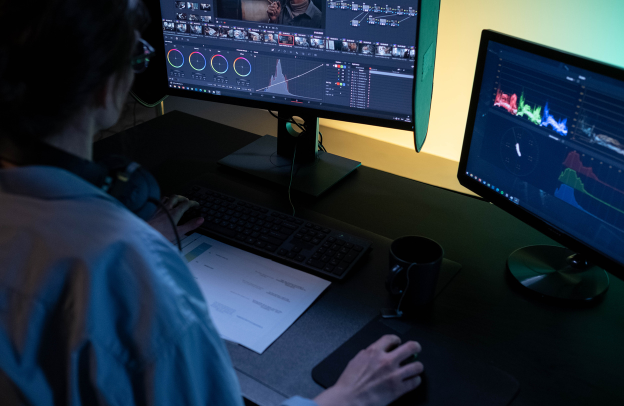Ayodeji Ibrahim Balogun: The Starboy and the Global Symphony of Afrobeat

It all began in Lagos, Nigeria, a busy city full of energy and noise. In this lively environment, a young Ayodeji Ibrahim Balogun started his journey to becoming one of the world’s biggest music stars. Today, he is known as Wizkid. But before the fame, the concerts, and the spotlight, his story began quietly in church, in small recording studios, and in the everyday spaces of his community.
Learn How to Leverage Your Story through our Story To Asset Framework.
Wizkid’s rise is more than the story of one young man’s success. It is a living example of how African stories, when told with authenticity, can travel beyond borders, planting seeds of cultural pride wherever they land.
There is an African proverb that says, “A tree does not make a forest.” In other words, while talent can shine, its true value is revealed when it serves the whole community. Wizkid’s career is a prove to this truth, his music has not only elevated his name but has also carried the heartbeat of Afrobeat onto the global stage, weaving African identity into the shared song of humanity.
Humble Beginnings, Strong Roots
Born on July 16, 1990, into a polygamous family in Lagos, Wizkid grew up surrounded by multiple influences. His mother’s Christian faith led him into the local church, and by age eleven, his voice had already begun to turn heads.
He became a lead singer in the church choir, a place where his natural gift was nurtured and sharpened by the collective support of those around him.
From those early days, it was clear that he was not waiting for opportunity to find him. He recorded with the church group Glorious Five, released an album, and later experimented with the stage name “Lil Prinz” while producing a seven-track project.
See also How Traveling to Africa Can Help Diasporans Reclaim Their Ancestral Identity
These were not just playful childhood experiments; they were the building blocks of a disciplined artist in the making. As the Nigerian say goes, “good things take time”.
The Breakthrough That Changed Everything
In 2009, a collaboration with Nigerian rapper M.I. Abaga on the track Fast Money opened the door to nationwide attention. The song was a hit across Nigeria and other African countries, earning nominations, awards, and constant radio play. But it was 2010’s Holla at Your Boy that truly lit the fire. By 2011, Wizkid had won the Next Rated award at The Headies and was already shaping the sound of a generation.
This was more than personal success. His unique style, a blend of Afrobeat, R&B, and streetwise energy, it was telling the story of modern Nigerian youth, full of ambition, hustle, and hope.
Africa to the World
From that moment, Wizkid’s career moved like a wave, crossing oceans. He worked with African icons like 2Face Idibia and Sound Sultan, then collaborated with global stars including Drake, Chris Brown, French Montana, and Ty Dolla $ign.
One of the biggest moments came in 2021 when his feature on Drake’s One Dance became a worldwide hit. It reached number one on the US Billboard Hot 100 and stayed there for ten weeks, topping charts in fifteen countries. It was a clear reminder of the proverb, music is the language of the world.
Over the years, Wizkid has collected awards from every corner of the globe: BET, MOBO, Billboard, MTV Africa, and more, along with Grammy nominations. These are not just trophies on a shelf. They are symbols of the world’s growing embrace of African music and the stories it carries.
Here’s some of his award’s list:
| Award Name | Year(s) & Work |
| Grammy Award for Best Music Video | 2021 · Brown Skin Girl |
| MTV Europe Music Award for Best African Act | 2021, 2016 |
| The Headies Award for Artiste of the Year | 2021, 2016 |
| Soul Train Music Award for Best Collaboration | 2021 · Essence |
| MTV Europe Music Award for Best Worldwide Act | 2016 |
| The Headies Award for Album of the Year | 2022 · Made in Lagos |
| BET Award for Best Collaboration | 2022 · Essence |
| The Headies Award for Song of the Year | 2022, 2016 · Essence, Ojuelegba |
| MTV Video Music Award for Best Cinematography | 2021 · Brown Skin Girl |
| The Headies Award for Best Collaboration | 2022, 2018 · Essence, Ma Lo |
| NAACP Image Award for Outstanding International Song | 2022 · Essence |
| Echo Award for Song of the Year | 2017 · One Dance |
| NAACP Image Award for Outstanding Music Video | 2022, 2021 · Essence, Brown Skin Girl |
| The Headies Award for Best R&B Single | 2022 · Essence |
| iHeartRadio Music Award for Afrobeats Artist of the Year | 2023 |
| NAACP Image Award for Outstanding Duo or Group | 2020 · Brown Skin Girl |
| American Music Award for Favorite Afrobeats Artist | 2022 |
| Nigeria Entertainment Award for Hottest Single of the Year | 2015, 2014 · Ojuelegba, Pull Over |
| Billboard Music Award for Top R&B Song | 2017 · One Dance |
| The Headies Afrobeats Album of the Year | 2022 · Made in Lagos |
| Billboard Music Award for Top Streaming Song (Audio) | 2017 · One Dance |
| Soul Train Music Award for Video of the Year | 2020 · Brown Skin Girl |
| Soul Train Music Awards: The Ashford & Simpson Songwriter’s Award | 2019 · Brown Skin Girl |
| Billboard Music Award for Top R&B Collaboration | 2017 · One Dance |
| iHeartRadio Music Award for Hip-Hop Song of the Year | 2017 · One Dance |
| MTV Africa Music Award for Best Collaboration | 2016 · Soweto Baby |
| BET Award for Best International Act: Africa | 2017, 2012 |
| The Future Awards Africa Prize for Young Person of the Year | 2017 |
| AFRIMA Award for Best Male Artiste In West Africa | 2023 |
| Nigeria Entertainment Award for Male Artist of the Year | 2015 |
| City People Entertainment Award for Pop Artiste of the Year | 2015 |
| MuchMusic Video Award for iHeartRadio Canadian Single of the Year | 2017 · One Dance |
| The Headies Award for Best R&B/Pop Album | 2018, 2016 · Sounds from the Other Side, Ayo |
| BET Her Award | 2020 · Brown Skin Girl |
| iHeartRadio Music Award for Most Thumbed Up Song of the Year | 2017 · One Dance |
| MTV Africa Music Award for Best Male | 2016 |
| MTV Africa Music Award for Artist of the Year | 2016 |
| The Headies Award for Viewer’s Choice | 2021, 2018 · Come Closer |
| NAACP Image Award for Outstanding Duo, Group or Collaboration (Contemporary) | 2025, 2023 · Piece of My Heart, Call Me Every Day |
| Top Naija Music Award for Best Collaboration with “A” List Artiste | 2015 · Boogie Down |
| Teen Choice Award for Choice Music: R&B/Hip-Hop Song | 2016 |
Beyond the Stage: The Business of Legacy
Wizkid is not just an artist; he is an entrepreneur. In 2013, he founded Starboy Entertainment, opening doors for other artists to rise. His business sense has also led to major endorsement deals with brands like Pepsi, MTN, and Globacom, earning millions in the process.
See also Remembering Nitel And Nipost A Wake-Up Call For Nnpc By Austin Isikhuemen
But the true measure of this success lies in its echo. By lifting himself, he has lifted others — a living example of the African principle of Ujamaa, cooperative economics.
The boy from Lagos now owns homes in Lekki and Los Angeles, drives luxury cars, and commands one of the highest performance fees in Africa. Yet his biggest asset remains his ability to inspire a new generation to believe their stories matter.
The Cultural Ambassador
Through his music, Wizkid carries the Sankofa spirit, looking back to honor his roots while moving forward to create something new. His songs speak of joy, struggle, love, and resilience. They celebrate Africa’s vibrancy while also addressing its realities. He has shown that when African voices tell African stories, the world listens.
As the Nigerian people say, wisdom comes from listening and learning. Wizkid listened to the rhythms of his people and turned them into a global sound.
The Lasting Symphony
Wizkid’s journey reminds us that music is not just entertainment it is history, identity, and power. Each beat he produces is a drumbeat of Africa’s heart. Each lyric carries a piece of its soul. His story proves that personal success, when rooted in cultural pride, can become a shared victory for an entire people.
There is an African proverb that says, “Until the lions have their own historians, the history of the hunt will always glorify the hunter.” Wizkid has become one of those historians, using music instead of a pen. His journey calls each of us to do the same to own our stories, protect them, and turn them into assets that will outlive us.
From the streets of Lagos to the world stage, Wizkid’s story is a living example of moving from roots to relevance. And like every great African story, it is still being written.
Learn How to Leverage Your Story through our Story To Asset Framework.





